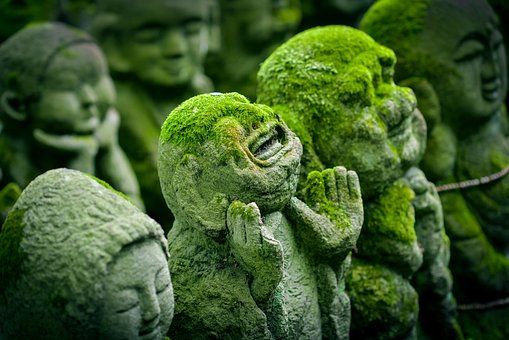Three years after the promising debut Let The Sun Talk, a mature flow of consciousness of imaginative hip hop heir to the experiments of MF Doom, MAVI finally returns to the fore with a new LP.
Laughing So Hard, It Hurts, starting from the title, the path of introspection continues in sixteen snapshots that almost never exceed two minutes and focus on a mood that is easy to associate with top players of the genre such as MIKE and of course Earl who, not surprisingly, had the merit of making the name of MAVI known to the world overseas by inviting him to collaborate on his EP Feet of Clay of 2019.
In common with them it certainly has the baritone timbre that it is often difficult to associate with the voice of under 30 or even with a class of 1999 who, despite his young age, already has very clear ideas about his musical and extramusical research path.
Omavi Ammu Minder was born in Lexington, South Carolina, but as a child he moved to North Carolina, Charlotte, with his parents, an intensive care nurse and a computer programmer with a great passion for music.
In his father’s small recording studio, he grew up in a context far from the spotlight of the mainstream rap scene and devoted himself to studying literature and science. With ambition and desire to emerge he manages to build an imaginary full of literary references inspired since his adolescence by the masterpieces of Toni Morrison whom he considers the greatest Anglophone author in history, of the South African Keorapetse Kgositsile, father of Thebe Neruda Kgositsile today known to all as Earl the Sweatshirt, and from the classics of African-American spirituality and identity such as Zora Neale Hurston whom he points out as a key figure in his formation.
His main effort is to share the extreme complexity of verses and references with other MCs and authors and he is often the fulcrum of collaborations and collective cultural experiments. Since he began to collaborate, in high school, in the Charlotte KILLSWITCH crew for his leadership ability he chooses as his first alias Mayor, the mayor, a denomination to which he is still linked so much that his new self-produced album still comes out for the label. Mavi For Mayor.
After school he moved to the capital, however, choosing not a humanistic course as his inclinations might suggest. He enrolled in neuroscience at Howard University convinced, as supported by some studies, that the part of the brain dedicated to language skills is the same as that of spirituality.
Alla Howard is able to share her passion for thinkers and authors linked to Afro-Futurism and Afro-Spiritualism with a larger number of colleagues and especially colleagues, approaching the literary works of Afro-American women’s emancipation.
In 2019 he finally manages to follow up on mixtapes written by post-adolescent, BEACON (2016) No Roses (2017) finding a first squaring of the circle to this unprecedented combination of science and literature that finds one of its moments of greatest depth in “Chiasma” (in Italian chiasmo) which in addition to being a rhetorical figure represents a particular conformation of chromosomes that demonstrates their crossing-over, that is, the interchange of DNA. In the texts of MAVI, his new nickname, the very particular crossing-over between scientific and emotional introspection is striking, which is well reflected in the rarefied atmospheres of the tracks and which does not disdain moments of political activism.
His research path rises level in the second LP also thanks to the collaboration with Earl and which gives him new certainties and also a certain international following, and the transition EP of 2021, End Of The Earth EP written during the months of lockdown where he is forced into his Charlotte.
Jazzy bases, very lysergic neo-soul visions, Southern rap jolts to give a more earthly and everyday touch make Laughing So Hard, It Hurts, released a week after his 23rd birthday, one of the most intriguing and dense albums of 2022.
MAVI’s auteur rap between neuroscience, literature and Afro-American spirituality

